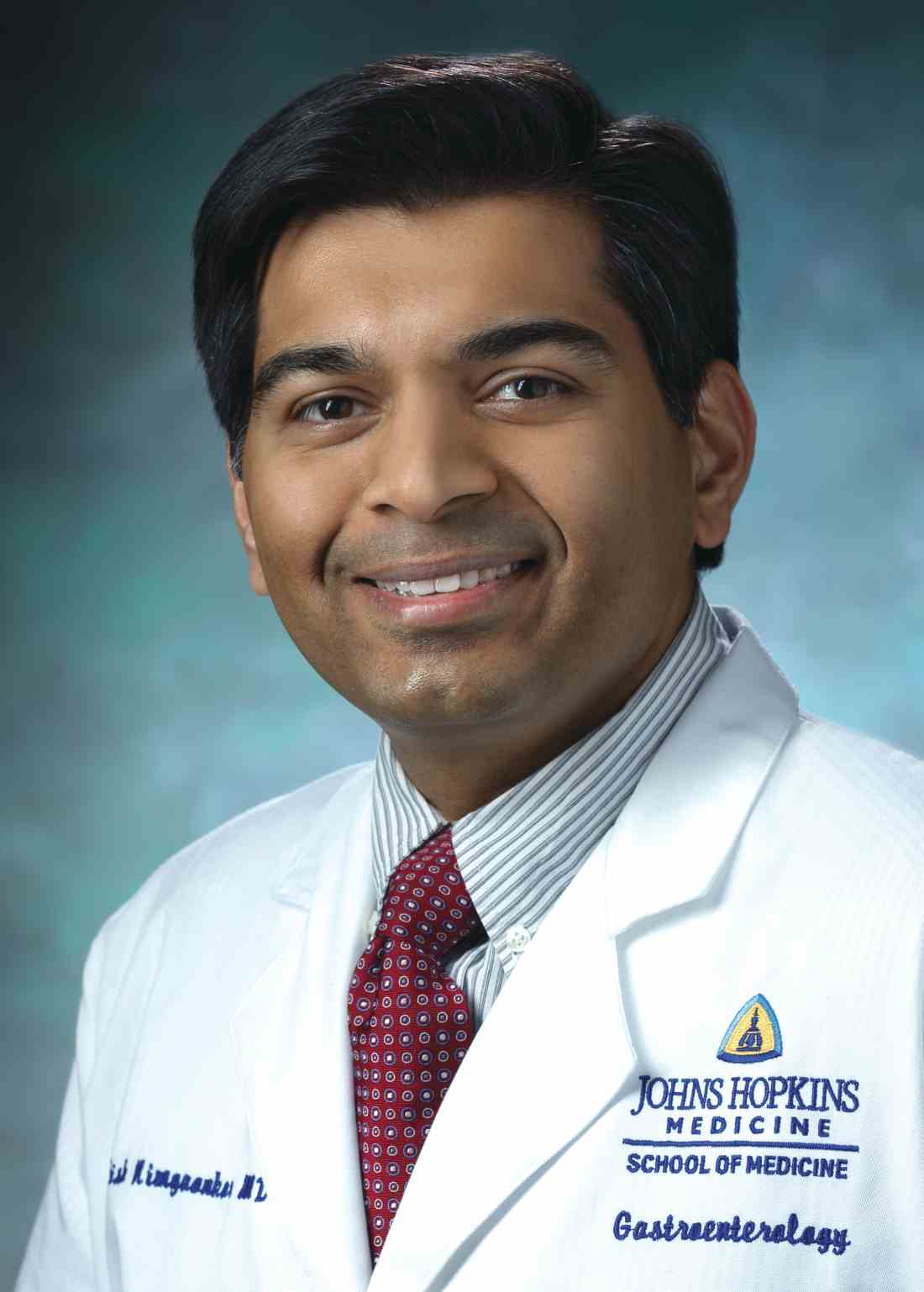User login
The AGA Research Foundation’s career development awards are invaluable tools for early career investigators to advance their careers in gastroenterology and hepatology research. When Ashish Nimgaonkar, MD, MTech, MS, received the AGA-Boston Scientific Career Development Technology and Innovation Award in 2014, he was able to step up his research and develop a new technological approach for managing patients with chronic liver disease-related complications. We are delighted to introduce you to the work of Dr. Nimgaonkar, medical director in the Johns Hopkins Center for Bioengineering Innovation and Design, department of biomedical engineering, and an assistant professor of medicine and business at Johns Hopkins University.
When Dr. Nimgaonkar received his funding from the AGA Research Foundation in 2014, he was able to focus on developing a technology that would enable patients with refractory ascites to manage their condition at home. This is a condition in which a large volume of fluid accumulates in the abdomen, causes difficulty breathing and affects patients’ quality of life. Patients visit a hospital or clinic several times a month to drain the fluid, which could weigh as much as 10 pounds or more. Refractory ascites is stubbornly resistant to standard medical therapy. The only definitive treatment is liver transplantation.
Dr. Nimgaonkar was able to combine his dual training in gastroenterology and in medical technology innovation through the biodesign program at Stanford University, along with the breadth of engineering and research expertise at Johns Hopkins University, to develop a bio-powered shunt that moves a patient’s fluid buildup out of the peritoneal cavity to the urinary bladder, where it can be eliminated naturally. His shunt has another major advantage for patients who are on liver transplant lists and are required to undergo MRI and other diagnostics: it contains no metal components.
Read more and get to know Ashish Nimgaonkar, MD, MTech, MS by visiting:
https://www.gastro.org/news/physician-innovator-working-to-bring-new-tech-to-patients-thanks-to-aga-funding
Help AGA build a community of investigators through the AGA Research Foundation.
Your donation to the AGA Research Foundation can fund future success stories by keeping young scientists working to advance our understanding of digestive diseases. Donate today at www.gastro.org/donateonline.
The AGA Research Foundation’s career development awards are invaluable tools for early career investigators to advance their careers in gastroenterology and hepatology research. When Ashish Nimgaonkar, MD, MTech, MS, received the AGA-Boston Scientific Career Development Technology and Innovation Award in 2014, he was able to step up his research and develop a new technological approach for managing patients with chronic liver disease-related complications. We are delighted to introduce you to the work of Dr. Nimgaonkar, medical director in the Johns Hopkins Center for Bioengineering Innovation and Design, department of biomedical engineering, and an assistant professor of medicine and business at Johns Hopkins University.
When Dr. Nimgaonkar received his funding from the AGA Research Foundation in 2014, he was able to focus on developing a technology that would enable patients with refractory ascites to manage their condition at home. This is a condition in which a large volume of fluid accumulates in the abdomen, causes difficulty breathing and affects patients’ quality of life. Patients visit a hospital or clinic several times a month to drain the fluid, which could weigh as much as 10 pounds or more. Refractory ascites is stubbornly resistant to standard medical therapy. The only definitive treatment is liver transplantation.
Dr. Nimgaonkar was able to combine his dual training in gastroenterology and in medical technology innovation through the biodesign program at Stanford University, along with the breadth of engineering and research expertise at Johns Hopkins University, to develop a bio-powered shunt that moves a patient’s fluid buildup out of the peritoneal cavity to the urinary bladder, where it can be eliminated naturally. His shunt has another major advantage for patients who are on liver transplant lists and are required to undergo MRI and other diagnostics: it contains no metal components.
Read more and get to know Ashish Nimgaonkar, MD, MTech, MS by visiting:
https://www.gastro.org/news/physician-innovator-working-to-bring-new-tech-to-patients-thanks-to-aga-funding
Help AGA build a community of investigators through the AGA Research Foundation.
Your donation to the AGA Research Foundation can fund future success stories by keeping young scientists working to advance our understanding of digestive diseases. Donate today at www.gastro.org/donateonline.
The AGA Research Foundation’s career development awards are invaluable tools for early career investigators to advance their careers in gastroenterology and hepatology research. When Ashish Nimgaonkar, MD, MTech, MS, received the AGA-Boston Scientific Career Development Technology and Innovation Award in 2014, he was able to step up his research and develop a new technological approach for managing patients with chronic liver disease-related complications. We are delighted to introduce you to the work of Dr. Nimgaonkar, medical director in the Johns Hopkins Center for Bioengineering Innovation and Design, department of biomedical engineering, and an assistant professor of medicine and business at Johns Hopkins University.
When Dr. Nimgaonkar received his funding from the AGA Research Foundation in 2014, he was able to focus on developing a technology that would enable patients with refractory ascites to manage their condition at home. This is a condition in which a large volume of fluid accumulates in the abdomen, causes difficulty breathing and affects patients’ quality of life. Patients visit a hospital or clinic several times a month to drain the fluid, which could weigh as much as 10 pounds or more. Refractory ascites is stubbornly resistant to standard medical therapy. The only definitive treatment is liver transplantation.
Dr. Nimgaonkar was able to combine his dual training in gastroenterology and in medical technology innovation through the biodesign program at Stanford University, along with the breadth of engineering and research expertise at Johns Hopkins University, to develop a bio-powered shunt that moves a patient’s fluid buildup out of the peritoneal cavity to the urinary bladder, where it can be eliminated naturally. His shunt has another major advantage for patients who are on liver transplant lists and are required to undergo MRI and other diagnostics: it contains no metal components.
Read more and get to know Ashish Nimgaonkar, MD, MTech, MS by visiting:
https://www.gastro.org/news/physician-innovator-working-to-bring-new-tech-to-patients-thanks-to-aga-funding
Help AGA build a community of investigators through the AGA Research Foundation.
Your donation to the AGA Research Foundation can fund future success stories by keeping young scientists working to advance our understanding of digestive diseases. Donate today at www.gastro.org/donateonline.

